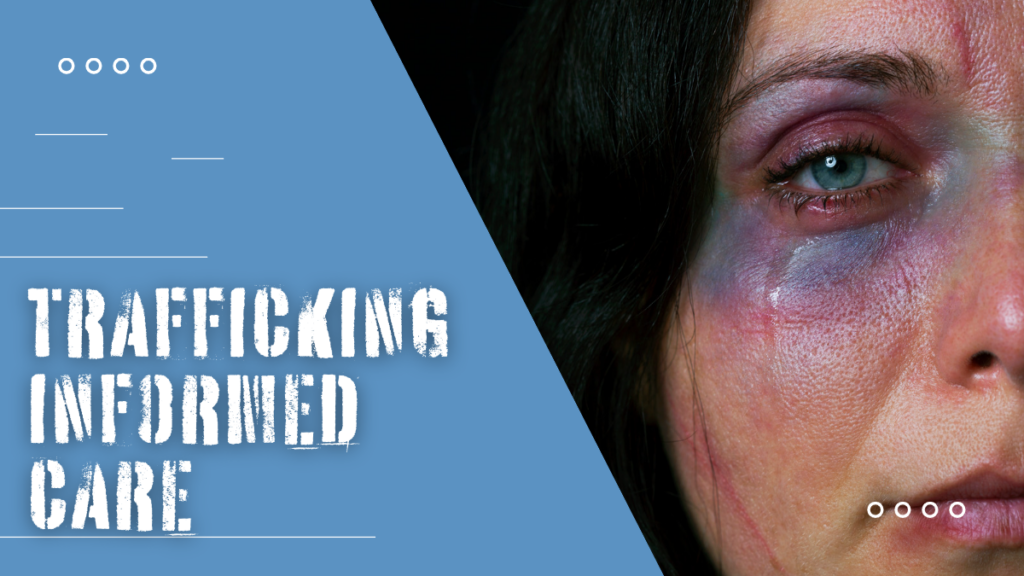
The Problem
Human trafficking victims are more prone to health concerns. Consequently, there is an increased vulnerability of victims who have extensive health concerns and disabilities. According to The Polaris Project, 88% of trafficking victims access health care during their trafficking situations. “Traffickers prey on people with chronic health concerns, exploiting the sense of isolation, the fears, the insecurities, and a perceived lack of options that are too often a part of growing up with and living with disabilities. On the National Hotline, between January 2015 – December 2017, a total of 2,116 potential victims were recorded as having a pre-existing health concern including a possible physical disability, mental health diagnosis, substance use concern, or intellectual/developmental disability, either prior to or at the start of their recruitment into trafficking.” However, many healthcare providers are not aware of nor equipped to identify the signs of human trafficking, or even know how to address the needs of survivors to ensure that they receive the necessary treatment.
How Trafficking-Informed Care Helps
Rescue 1 Global has partnered with American Physician Partners to provide online training to medical professionals. Our Restoration Team created a presentation that encompasses basic human trafficking signs and statistics, all the way to treatment, trafficking-informed care, reporting, and advocacy. Through this training, medical professionals can now have a basic understanding of what human trafficking is, the signs, and how to deliver the best care possible.
Healthcare Providers Commit to Trafficking-Informed Care
We are so happy to share some of the current results from the Rescue 1 Global training and the incredible impact on physicians that the training is having! The results below are from the launching quarter. 66% of the physicians and medical professionals who took the training said that they will change their practice to include trafficking-informed care.
| TOTAL QUESTIONS REGARDING CHANGE OF PRACTICE REGARDING HUMAN TRAFFICKING | 556 |
| TOTAL PROVIDERS WHO WILL CHANGE THEIR PRACTICE RELATED TO HUMAN TRAFFICKING | 365 |
| TOTAL PERCENTAGE WHO WILL CHANGE PRACTICE GOAL 40% | 66% |
